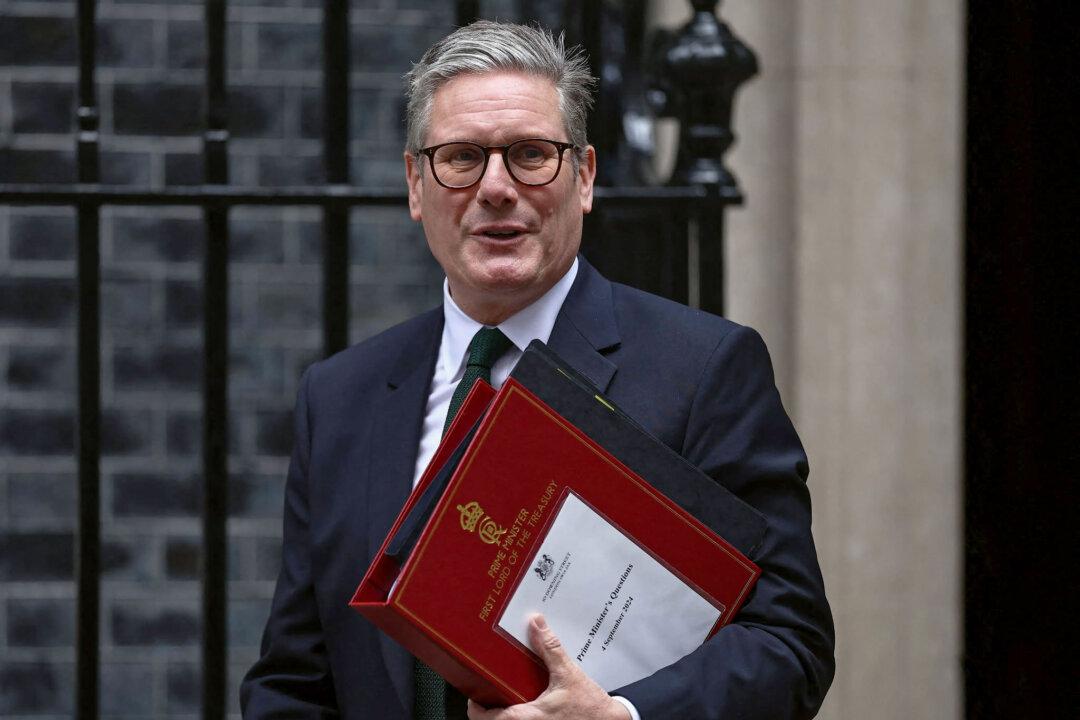Prime Minister Sir Keir Starmer has vowed that the Autumn Budget, widely expected to include tax increases and spending cuts, will not inhibit economic growth.
Speaking to reporters on Monday on his trip to Italy, Starmer said that economic stability was essential to achieving growth.
“If it promotes economic growth, it’s in the Yes column; if it inhibits economic growth, then it’s in the No column. And because I believe that stability is vital for economic growth—I don’t think we’re going to get economic growth if we don’t stabilize the economy—we’re going to do the really hard stuff now,” the prime minister said.
His remarks come ahead of the budget statement on October 30. Labour has warned that the upcoming budget will be “painful” and said there was a “£22 billion black hole” in the public finances.
Starmer said that while dealing with the black hole was key to stable economy, his government will make all decisions with the objective of economic growth in mind.
Chancellor Rachel Reeves is expected to announce a number of tax changes, which are meant to increase revenue for the Treasury.
Closing Loopholes
Over the course of the next Parliament, Labour plans to reduce debt as a share of the economy.The government has vowed to raise £2.6 billion in the next five years—including £1 billion initially—“by closing the loopholes” in the tax status of UK resident non-domiciled individuals.
Labour also wants to establish a wider range of tax schemes to be reported to HMRC under the disclosure of tax avoidance schemes regime.
CGT is levied on the profit made on the sale of an asset that has risen in value. It is levied at a lower rate than income tax, which makes it a tempting target for the Treasury.
Basic rate income taxpayers are typically subject to 10 percent on gains from most assets and 18 percent on residential property and performance-based rewards for investment managers.
For those in higher income brackets, higher CGT rates apply—20 per cent for most assets, 24 percent (from 6 April 2024) on residential property and 28 percent on carried interest.
The government has explicitly said it will target managers working in the private equity industry “where performance-related pay is treated as capital gains.”
Investor Confidence
The Confederation of British Industry (CBI), which represents 170,000 businesses in the country, has warned that ahead of the “difficult” budget, the government needs to maintain investor confidence.Commenting on concerns about underinvestment in the economy, Starmer said it was a matter for the budget but strong fiscal rules were important.
“I’ve always thought it’s important to borrow to invest,” he said.
The prime minister added that he wants to avoid the repeat of unfunded budget policies, announced by the Conservative Prime Minister Liz Truss in 2022.







